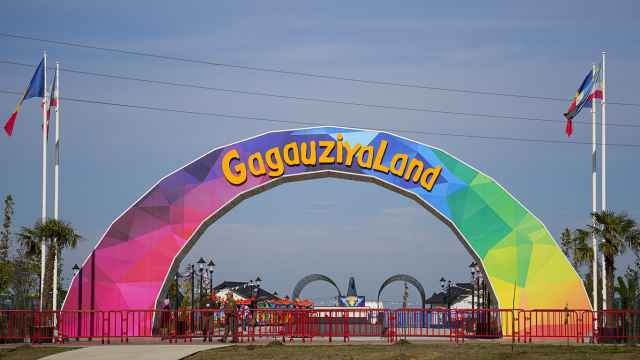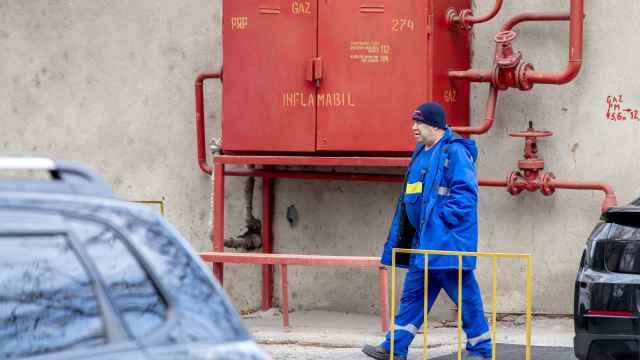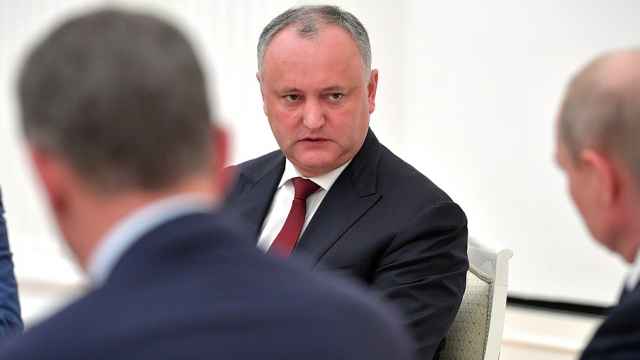At a meeting of the European Council, 27 EU leaders confirmed their strong support for Moldova’s decision to align itself with the West. However, Russia will attempt to interfere with this trajectory, primarily through interference in Moldova’s upcoming parliamentary elections.
This fall promises to be intense not only on the battlefields of the Russian-Ukrainian war but also on the front lines of Russia’s hybrid war against the West. Moldova's parliamentary elections will be one of the most decisive confrontations in this hybrid war. A euroskeptic legislature could significantly slow down, or even completely derail, Moldova's drive toward European integration.
Russian propagandists' laser focus on Moldova became abundantly clear during the 2024 presidential elections. The first round of voting, which coincided with a referendum on European integration, is particularly telling.
Of the 482 sources reporting on Moldova's elections during the voting and counting process, 150 Telegram channels were compromised. Their activities were directly linked to a Kremlin effort to influence the media, with state-backed sources starting disinformation campaigns and attempting to manipulate public opinion. In effect, every third source covering Moldova’s presidential elections was unreliable.
Monitoring of similar influence campaigns conducted by the Institute for Conflict Studies and Analysis of Russia (ICAR) throughout 2024-2025 reveals that compromised and Kremlin-affiliated sources covering Moldova's elections appeared at twice the rate of their typical usage in other political meddling operations.
Russia has compelling reasons to achieve at least a slowdown in Moldova's ascension into the EU, and, if Russia succeeds in installing a puppet parliament, to begin implementing the "Georgian scenario." While the Russians are struggling to create a puppet state like Belarus out of Ukraine, dividing and destabilizing Moldova like Russia did with Georgia remains entirely feasible.
The gravity of the Kremlin's commitment and the substantial resources devoted to this effort became evident after two months of monitoring Moldova's latest pre-election landscape.
From April 15 to June 15, 2025, ICAR collaborated with Moldovan partners from Watchdog MD to conduct nine weekly monitoring sessions tracking Russian propaganda’s attempts to hijack Moldova's electoral process and influence the country's internal political dynamics.
This monitoring aimed to identify key propaganda narratives and prominent propagandists twisting Moldova's political landscape to serve the Kremlin’s agenda. Researchers collected data from Russian Telegram channels using automated AI tools and manual analysis.
The primary conclusion from ICAR’s report was that Moscow funds multiple political projects simultaneously to maximize its chances of securing a pro-Russian parliament this fall. These operations targeted former president and parliamentary speaker Vladimir Voronin, the controversial former president Igor Dodon, former prime minister Vasile Tarlev, former anti-corruption prosecutor Victoria Fortuna and even the ostensibly pro-European Chisinau Mayor Ion Ceban.
Ilan Shor, a businessman and architect of a fraudulent scheme that enabled the theft and offshore transfer of a billion dollars, plays a pivotal coordinating role among pro-Russian opposition figures. He was highly active throughout the period ICAR monitored, weighing in on virtually every significant event and amplifying key Russian narratives.
The second conclusion is that Russia is ready to escalate pressure on Moldova by activating new pressure points and potentially sparking regional unrest. While the breakaway Transnistria region remains Moscow's traditional lever for influencing Moldova's domestic affairs, the Kremlin has clearly decided to diversify its approach, weaponizing Gagauzia to create fresh nightmares for Chisinau.
During the monitoring period, compromised media outlets actively promoted Evghenia Gutsul, the governor of the autonomous Gagauz region. Moldovan authorities are prosecuting Gutsul for illegally funding the former Shor party, named after the notorious billionaire, and mismanaging its financial resources. Yet Russian propaganda frames her prosecution as evidence of Chisinau’s determination to eliminate regional autonomy and suppress political opposition. ICAR’s report found that Moscow is putting in a considerable and systematic effort to advance these narratives.
Moreover, Russia is escalating tensions by exploiting Moldovans’ fears of war, pushing narratives about protecting Gagauzia, drawing parallels with its attack on Ukraine under the guise of protecting the people of Donbas.” Monitoring from the 2024 elections in Moldova and Georgia, as well as Romania's 2025 elections, demonstrates that this is a favored tool by the Russian propaganda machine to influence foreign politics. Moscow will surely use this tactic again this fall.
The report also found that Russian propagandists aimed to strengthen euroskepticism in Moldovan society and undermine popular trust in democratic institutions. The channels emphasize concrete and immediate benefits of allying with Russia, such as lower gas prices, over the intagible and less certain promise of a brighter future in the EU.
Moscow’s primary objective for the near term remains to slow Moldova's rapid pace toward EU membership. This is also critically important as a demonstration to the world, particularly doubtful forces in Europe, that the Kremlin can still get what it wants without resorting to outright aggression; Russia’s hybrid warfare is meant to contrast with the destruction Russian forces are wreaking in Ukraine. Moldova and Ukraine were invited to join the EU simultaneously. Their parallel progress towards integration with the West looked unstoppable until Moscow intervened.
Moldova can also be seen as a proving ground for where Moscow might turn its attention to next. The same strategies cannot be applied in Ukraine where are no elections and no possibility of promoting pro-Russian politicians as there was before 2022. There is also no way to frighten the population with the prospect of war, since a merciless war is already underway.
Moscow aims to undermine Ukraine’s strengthening ties with the West by targeting corrupt regimes in the EU itself, most notably through Viktor Orbán and his regime in Hungary. Orbán openly opposes Ukraine's EU membership and does everything he can to obstruct the adoption of substantive sanctions against Russia. His constant ally has been Slovakia’s prime minister Robert Fico, but even he is lagging behind Orbán's brazenly pro-Russian behavior.
Viktor Orbán's open campaign against Ukraine cannot be explained solely by domestic political considerations, particularly his desire to win further elections by stoking fear in Hungarian society. Polls show Orbán's chances of victory are steadily diminishing. Moscow is in a hurry and going all-in, using Orbán regardless of any risks such foreign meddling might involve.
It seems high time that the EU responds to Budapest’s coziness with Moscow. By the looks of it, however, Brussels will not take action. Officials there are hoping that the Hungarian problem sorts itself out during the 2026 elections which could produce a pro-European government.
But the Kremlin understands this as well, which means Russia’s interference in Hungarian elections is almost inevitable. Thus, the monitoring must continue.
A Message from The Moscow Times:
Dear readers,
We are facing unprecedented challenges. Russia's Prosecutor General's Office has designated The Moscow Times as an "undesirable" organization, criminalizing our work and putting our staff at risk of prosecution. This follows our earlier unjust labeling as a "foreign agent."
These actions are direct attempts to silence independent journalism in Russia. The authorities claim our work "discredits the decisions of the Russian leadership." We see things differently: we strive to provide accurate, unbiased reporting on Russia.
We, the journalists of The Moscow Times, refuse to be silenced. But to continue our work, we need your help.
Your support, no matter how small, makes a world of difference. If you can, please support us monthly starting from just $2. It's quick to set up, and every contribution makes a significant impact.
By supporting The Moscow Times, you're defending open, independent journalism in the face of repression. Thank you for standing with us.
Remind me later.








